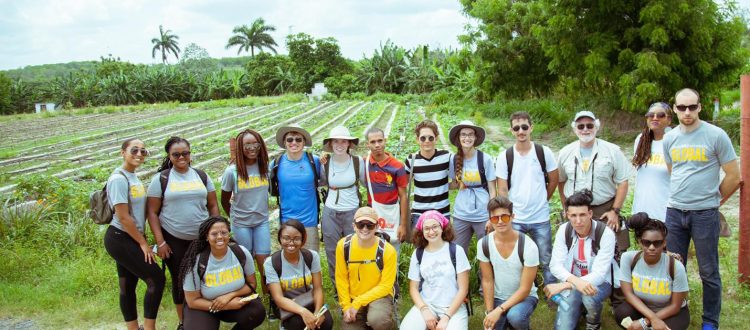CHE 2018 STUDENTS REFLECT ON CUBA
In 2016, Drexel University’s Office of Global Health and La Universidad de Cienfuegos launched their first partnership program entitled Community, Health and Environment (CHE), a multidisciplinary approach to issues related to public health. The program is the product of collaborations that began at the Workshop of Strategic Alliances for the Internationalization of Higher Education (Cuba TIES).
In the years since its initial launch, Drexel and the University of Cienfuegos have expanded the program in different directions to further expand their multidisciplinary approach. On June 10, 2018, ten students from four US Schools were a part of the CHE experience including a graduate researcher and four Drexel ISTAR students who participated in an ongoing research project between Cienfuegos and Drexel faculty. When they returned, some of the students volunteered to write reflections. Here are just a few.
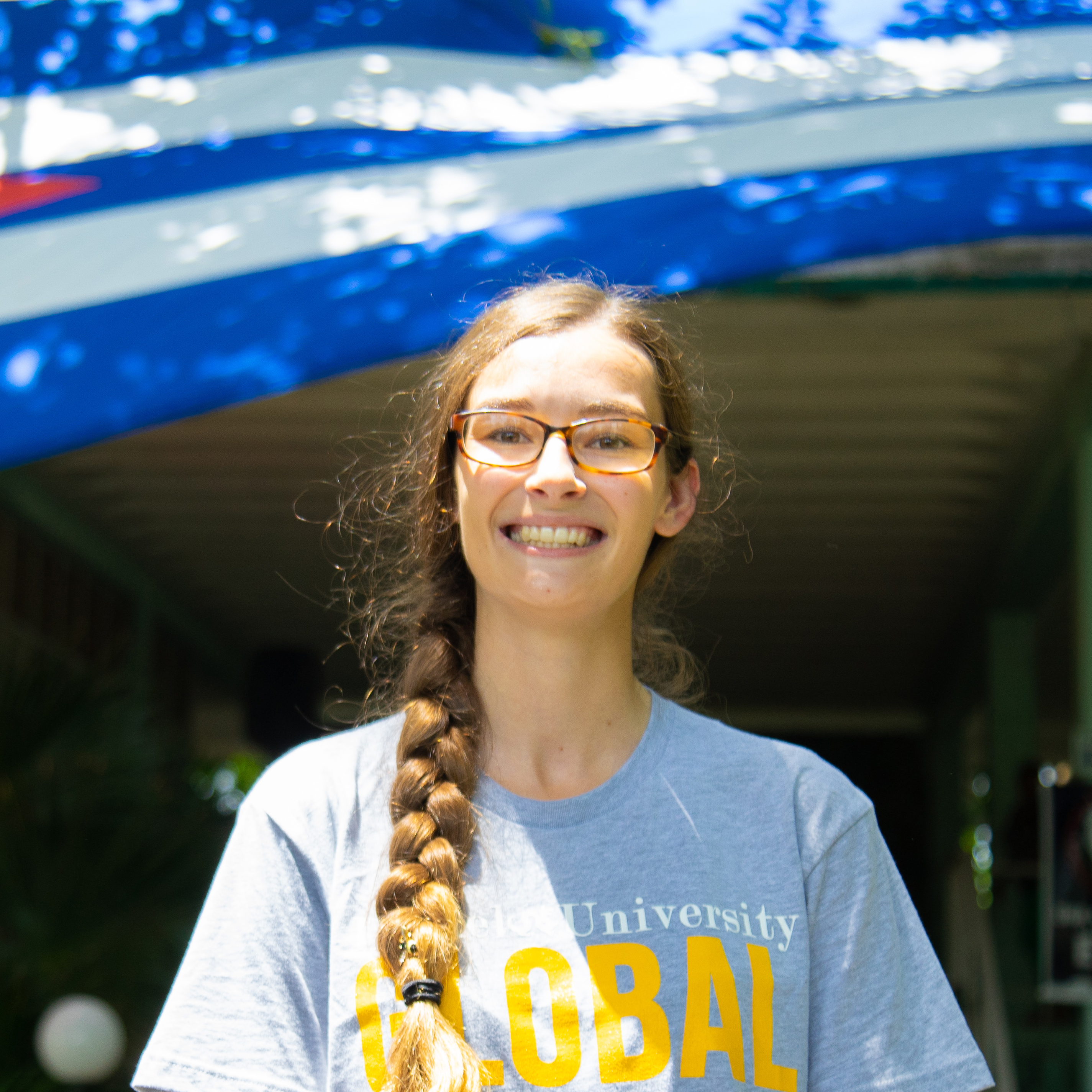
Meghan Barrett is a graduate student earning her PhD in Biology and Masters in Undergraduate STEM Education at Drexel University in Philadelphia, PA. Her work focuses on the impact of climate change and introduced species on local ecosystems.
Liberty is the essence of life. – José Martí (1894)
“In Cuba, I am dancing. This memory could be from a number of nights in Cienfuegos, where the music sways the soul, then the feet. No matter the memory, my dance partner is sinuous, elegant, patient – a direct contrast to my own plodding, halting, nearly newborn steps. We dance without needing to know anything about one another, connected through fingertips, occasionally palms when I am turned in a spin, laughing. Around me, the scene is a picture of serenity in motion, souls communing through the weaving rhythm. Even when you are ridiculously bad at dancing (read: me), the momentum of your fellow dancers energizes you: keep moving, keep pushing, keep stepping towards the freedom in the dance.
Dancing in Cuba is a collective meditation on the power and transience of liberty.
It does not take long for those around me to see that I am transforming in Cuba. When we meet outside of working hours, my friends jokingly begin to call me ‘Maria’ instead of Meghan, so different are these two constructed identities. Maria lets her hair down, speaks broken but rapid Spanish, drinks rum on the Malecon until two in the morning, laughs, tries magic tricks, wears color – and she dances. Meghan bundles her hair away before she laces up her hiking boots. Meghan speaks clipped, rapid English that is all focus, productivity, worry: all about driving outcomes. Meghan only dances when the music catches her off guard. My friends and students can see the dynamic change occurring, the shift towards some brighter, yet more peaceful, being.
Studies have shown how inter-linked language, culture, and identity are, and that people often assume different identities when they speak different languages or are engaged in different sociocultural contexts. I never would have expected this intense of a dualism to emerge in only a month, especially while surrounded by my American research projects and my colleagues from my American University. But Cuba’s culture is intense and evocative, like the people that make it and their history of hard-won revolution. This is not a culture that takes freedom for granted; Cubans do not manufacture their own constraints after having spent centuries casting off the constraints imposed by others. The reminders of the preciousness of freedom and the country’s history of slavery can be found scattered throughout daily living, even embedded in the dances themselves (for example: the Pilon, an homage to slaves processing of sugarcane). This is not a cultural experience of a few, minority groups in Cuba – this is the living experience and cultural identity that shapes nearly every person’s life.
Immersed in the spirit of Cuba, you cannot help but quickly become attuned to these new aspects of yourself – the value placed on freedom inundates the music, the literature, the art on the street, even the alcoholic drinks are ‘Cuba Libre’ or “Free Cuba”. This deeply embedded, authentic love of collective liberty inundates their value system: No one is free unless everyone is free. Even my American freedom was important to my Cuban colleagues – the bartenders at my two favorite bars both wished me a Happy Independence Day on July Fourth, with all the enthusiasm of it being their own national holiday. It does not take long for this culture to empower you to reach for your own freedom and experience a revolution of identity and value rooted in the Cuban national cultural perspective.
Going to Cuba, a lesson in ‘freedom’ is not what I was expecting. My educational background in the United States prepared me for a backwards and terrified country seeing the first lights of tentative freedom after decades of miserable dictatorship. Instead, the Drexel Community Health and the Environment program, my colleagues at the University of Cienfuegos, and the many people of Cuba who gave of themselves during my trip became my educators, connecting with me over my very American cultural values: life, liberty, and the true pursuit of happiness.
In Cuba, I am dancing.”
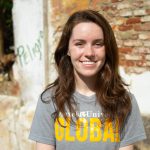
Maggie McCurdy is now a sophomore and an environmental engineering major at Drexel University.
“When I first traveled to Cienfuegos, I did not know what to expect, but I was very optimistic and excited to learn about Cuban culture. However, the program ended up exceeding any expectations I could have had. When we arrived in Cienfuegos, we were immediately welcomed. Everyone we met, from strangers on the street to our mentors at the University of Cienfuegos were so open and willing to help us. It was a level of community I had never experienced before, and it made being far from home feel like you were with family all the time.
I was travelling with a team from Drexel University, who, with students and professors from the University of Cienfuegos, were participating in joint research to study a species of bee called Melipona beecheii. Everyone on the team was extremely patient and encouraging, as we navigated language barriers and figured out new methods and approaches to the science.
Also, everyone I met was extremely generous. People opened their homes to us to let us work with their bees. It was such a wonderful environment to work and learn in and really pushed me to think about how I can be more generous and open in my daily life. We all contributed what we could, from expertise to a positive mindset. No matter what point we were in our careers, everyone was treated with mutual respect, and no idea went unappreciated. The result of this amazing experience was that we made connections and friendships that will last us our whole lives, all while working to understand a small bee that had brought us together.”
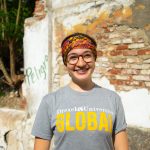
Serena Joury is a sophomore studying Environmental Science and Product Design at Drexel University, who moved to the US from Jordan to pursue higher education. One of her goals for combining the aforementioned fields is to learn how to design better ways to communicate environmental issues and research.
“Expressing my thoughts on the CHE and iSTAR experience is extremely challenging. I have made mind-maps with countless branches and outlines that go on forever. When people ask me about my time in Cuba, I struggle to figure out how to describe it. I started valuing this loss for words; it merely highlights how rich and transformative this experience was. I could discuss all what I have learned about global health, the wonderful relationships we have made, and the Cuban culture. However, instead of giving you a bird’s eye view of my experience, I would like to dive into one of the most impactful aspects of my time there; it is what we like to call ‘living in the Cuban bubble.’
To begin with, access to Wi-Fi in Cuba is very limited. I got around 5-10 minutes of Wi-Fi every day. I stopped checking my phone right before I fall asleep or the second I wake up… it was liberating! With time, I developed a more positive self-image because I wasn’t constantly comparing myself to others on social media. I also felt less anxious about missing out on what the rest of the world was doing.
The Cuban bubble also taught me a lot about how to be there for others, as well as take care of myself. I started to value alone time to process the events of each day, and I realized how important it is for me to have one-on-one conversations in order to feel heard. I learned that even professors, mentors, and peers need breaks, and when they are living in the bubble with you, it is important for you to be there for them. None of us could simply call a loved one, someone who knows us well, to unload all of our joy, excitement, frustration, and homesickness. It was challenging, but we eventually realized that being “strong” and emotionally isolated is overrated. Instead, being vulnerable proved to be more efficient in this system; it is what improved our communication and energy levels as a team.
I also felt a change in my attitudes and behaviours. I found myself sitting outside, listening to the sounds of Cienfuegos. I started sketching instead of taking photographs because I never carried my phone. Cuba moves at a different pace than the rest of the world; it is socially acceptable to be late to a meeting, or to strike up a conversation with a stranger, or stroll to your destination instead of power-walk. I met people in a more organic way, and life seemed so much simpler. If I lost my group, or if I wanted to find a particular place, all I had to do was ask someone in the street, and I would be met with the kindest help.
We would joke around, saying that we would be run over in Philadelphia if we didn’t switch back to our fast-paced lives upon our return. Little did I know how true that was; it was hard to readjust after the bubble popped. I suddenly let all the noise of the world back into my life; I was back to social media, constant texting, phones ringing, dozens of emails, and 4G! It was overwhelming, and with time, it got harder to stay in touch with the more genuine version of myself that I found in Cuba. However, I still dance salsa (or at least try to) whenever I take a break, write emails to my loved ones, and strive to have more conversations that matter with the people around me.
Although it was tough, I am grateful for living in the Cuban bubble; without it, I would not have noticed how humanity surrounded me in Cuba. It is in the blaring Latino music coming from every speaker around every corner urging people to dance whenever they feel like it. It is in the waves and smiles of all my neighbors. It is in the hugs and compliments of my hosts every morning. It is in the will power and determination of our Cuban colleagues to make this collaboration a reality. I could go on forever.
I used a diary to keep track of my thoughts and reflections in Cuba. One of my favorite logged days has a quote said by Profe Dairo in big colorful letters: ‘Humanity still exists in Cuba, and you don’t even have to go looking for it.'”
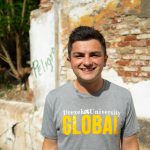
Zachary Smith is an Environmental Science major. Zachary is passionate about being involved on campus and is a member of the Pennoni Honors College, and the Drexel Sierra Club. He feels that protecting our resources and educating people on how to be environmentally conscious can directly benefit community health around the globe.
“When I applied to Drexel University, I was well aware of its international presence and its study abroad opportunities. When I began my freshman year I knew that I wanted to spend some time abroad during my 5 years at Drexel, I just didn’t know when it would happen. When I first became aware of the CHE & iSTAR programs offered through Drexel’s Global Health department and Civitas Global Educational Services, I was eager to apply. After discovering that I would have the opportunity to spend time abroad as a freshman, I was ecstatic to depart for Cienfuegos, Cuba to participate in the CHE program.
My time in Cuba was unlike anything I had ever expected. One of the first major differences between the United States and Cuba was the friendly attitude Cubans had on the streets, in stores, and at the University of Cienfuegos. Our host families and Cuban colleagues immediately took us in and made us feel at home.
This accepting attitude made my adjustment to living in a foreign country much easier. Without having to worry about adjusting to Cuban lifestyle, I was able to focus most of my attention on conducting research on Melipona bees with my colleagues. I appreciate the opportunity CHE & iSTAR provided me within a welcoming environment that allowed me to make the most out of this incredible learning experience.
I would like to extend my thanks to Civitas Global Educational Services, Drexel University, The University of Cienfuegos, and all of the wonderful professors that helped me through this experience. The relationships I built with all of my Cuban colleagues have impacted me and guided me throughout my time abroad. Without them I would not have been able to reach out and challenge myself each and every day. Our friends in Cuba embraced us and helped us succeed in our joint research experiences.”
The Drexel-Cienfuegos CHE Experience is a two-to-four week program that runs every summer. For more information or to participate in CHE 2019, contact Idris Robinson, MPH, Assistant Director, Drexel Office of Global Health at Idris@drexel.edu.

